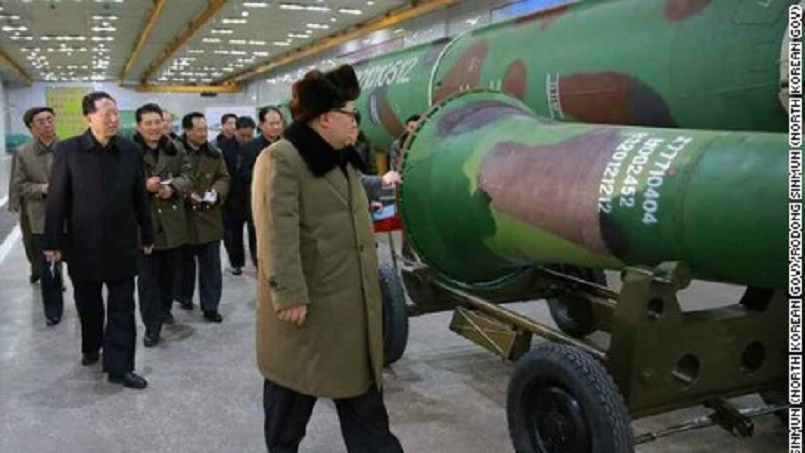
North Korea fired two missiles Wednesday morning from its eastern coast, according to South Korean and U.S. officials.
Both are believed to be Musudan intermediate-range missiles, fired from the North Korean port city of Wonsan, said Commander Dave Benham, spokesman for the U.S. Pacific Command.
North Korea has made at least four previous attempts this year to test this type of missile.
Both missiles were tracked over the Sea of Japan, also known as the East Sea, "where initial indications are they fell," Benham said. Benham said the missile launches did not pose a threat to North America.
Japan's defense minister Gen Nakatani told reporters that the first missile launch did not affect the country's security, but he also called for immediate meetings to take all possible measures to protect Japan. He made the comments before the second missile launch.
The first missile launch occurred at 5:58 a.m. local time and the South Korean military presumed that one had been a failure, according to a spokesperson from the country's Joint Chiefs of Staff.
About two hours later, North Korea fired the second missile at 8:05 a.m. local time, according to the spokesperson. That missile flew about 150 kilometers, a South Korean military official told CNN, but he could not say where it fell. He said further analysis is being conducted.
The U.S. State Department condemned the recent missile tests in a statement: "We are aware of reports that the DPRK fired two ballistic missiles. We are monitoring and continuing to assess the situation in close coordination with our regional allies and partners."
The United States advised North Korea to stop its ballistic missile tests and said it only strengthened the international community's resolve to press forward with U.N. sanctions. The United States said it would also defend its allies, South Korea and Japan, and called its commitment to them "ironclad."
"We remain prepared to defend ourselves and our allies from any attack or provocation," according to U.S. State Department spokesperson John Kirby.
